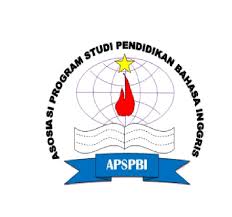Learning Climate Support and EFL Students’ Autonomy and Motivation in Online Learning in Indonesia
DOI:
https://doi.org/10.22515/elereviews.v3i2.7460Keywords:
learning motivation, learning climate support, learning autonomy, online learning, EFLAbstract
Autonomy, motivation, and learning climate are significant factors in online learning. This study aims to determine the students’ motivation and autonomy in online English as a Foreign Language (EFL) classes. It also classifies the Learning Climate Support (LCS). This quantitative study used the Perceived Locus of Causality Scale for academic motivation in university (PLOC-U) and the Learning Climate Questionnaire (LCQ 15). It involved 134 students from nine universities in Java, Indonesia. The results show that most students were on a moderate level in intrinsic motivation (m=5.25), regulated identification (m=5.74), regulated introjection (m=4.85), and external motivation (m=4.95). The mean of motivation loss was at a low level of 2.73. Most students were ‘regulated identification’ learners, which showed that most students were one step closer to being intrinsic or autonomous learners. Furthermore, LCQ indicated moderate acceptance of lecturers’ empathy and engagement in classes but a lower level of students’ assertiveness. The findings suggest that students did not experience demotivation in online learning, and students’ goals highly motivated students in online learning. The perceived LCS implies the need to improve learning instructions in online classes.
Downloads
References
Alberth, A. (2011). Critical success factors in online language learning. TEFLIN Journal, 22(1), 16-33. https://doi.org/10.15639/teflinjournal.v22i1/16-33
Algiovan, N., & Roza, A. S. (2020). English teaching materials during global pandemic: A survey on online learning at vocational schools in Lampung. GEEJ (Getsempena English Education Journal), 7(2), 307-316. https://doi.org/10.46244/geej.v7i2.1180
Alqahtani, A. Y., & Rajkhan, A. A. (2020). E-learning critical success factors during the COVID-19 pandemic: A comprehensive analysis of e-learning managerial perspectives. Education Sciences, 10(9), 216. https://doi.org/10.3390/educsci10090216
Ariebowo, T. (2021). Autonomous learning during COVID-19 pandemic: Students’ objectives and preferences. Journal of Foreign Language Teaching and Learning, 6(1), 56-77. https://doi.org/https://doi.org/10.18196/ftl.v6i1.10079
Deci, E. L., & Ryan, R. M. (1985). The general causality orientations scale: Self-determination in personality. Journal of Research in Personality, 19(2), 109-134. https://doi.org/10.1016/0092-6566(85)90023-6
Dörnyei, Z., & Ushioda, E. (2011). Teaching and researching: Motivation. Pearson.
Ferdiansyah, S., Ridho, M. A., Sembilan, F. D., Sembilan, F. D., & Zahro, S. F. (2020). Online literature circles during the COVID‐19 pandemic: Engaging undergraduate students in Indonesia. TESOL Journal, 11(3), n/a-n/a. https://doi.org/10.1002/tesj.544
Fredricks, J. A., Blumenfeld, P. C., & Paris, A. H. (2004). School engagement: Potential of the concept, state of the evidence. Review of Educational Research, 74(1), 59-109. https://doi.org/10.3102/00346543074001059
Fukushima, T. (2006). A student-designed grammar quiz on the web: A constructive mode of grammar instruction. Educational Media International, 43(1), 75-85. https://doi.org/10.1080/09523980500490901
Goudas, M., Biddle, S., & Fox, K. (1994). Perceived locus of causality, goal orientations, and perceived competence in school physical education classes. British Journal of Educational Psychology, 64(3), 453-463. https://doi.org/10.1111/j.2044-8279.1994.tb01116.x
Hambleton, R. K. (2005). Issues, designs and technical guidelines for adapting tests into multiple languages and cultures. In R. K. Hambleton, P. F. Merenda, & S. D. Spielberger (Eds.), Adapting Educational and Psychological Tests for Cross-Cultural Assessment (pp. 3-38). Lawrence Erlbaum Associates.
Iftanti, E., Imelda, I., & Yunita, W. (2023). Uncovering EFL learners’ demotivation towards English online learning during the COVID-19 pandemic in Indonesia. Studies in English Language and Education, 10(1), 96-116. https://doi.org/10.24815/siele.v10i1.25401
Kemdikbud, P. W. (2021). Dorong pemulihan pembelajaran di masa pandemi, kurikulum nasional siapkan tiga opsi. Kementerian Pendidikan, Kebudayaan, Riset, dan Teknologi. https://www.kemdikbud.go.id/main/blog/2021/12/dorong-pemulihan-pembelajaran-di-masa-pandemi-kurikulum-nasional-siapkan-tiga-opsi
Muhammad, A., Feham, M., Ahmad, F., N, Q., & Shah, A. (2016). A study to investigate state of ethical development in e-learning. International Journal of Advanced Computer Science & Applications, 7(4). https://doi.org/10.14569/IJACSA.2016.070436
Mulyati, T. (2022). Learners’ autonomy in the midst of COVID-19 pandemic. ELTICS (English Language Teaching and English Linguistics) Journal, 7(1), 72-81.
Núñez, J. L., León, J., Grijalvo, F., & Albo, J. M. (2012). Measuring autonomy support in university students: The Spanish version of the learning climate questionnaire. The Spanish Journal of Psychology, 15(3), 1466-1472. https://doi.org/10.5209/rev_SJOP.2012.v15.n3.39430
Nuzulia, R., & Kepirianto, C. (2020). Reducing student’s English dialogue anxiety in online learning through board game. Lensa (Semarang Online), 10(2), 263-279. https://doi.org/10.26714/lensa.10.2.2020.263-279
Oga-Baldwin, W. L. Q. (2019). Acting, thinking, feeling, making, collaborating: The engagement process in foreign language learning. System 86, 102128. https://doi.org/10.1016/j.system.2019.102128
Okada, A., & Sheehy, K. (2020). Factors and recommendations to support students’ enjoyment of online learning with fun: A mixed method study during COVID-19. Frontiers in Education, 5. https://doi.org/10.3389/feduc.2020.584351
Pamungkas, J. (2021). Identification of missing eastern cultural values during the COVID-19 pandemic in early childhood learning. JPPI (Jurnal Penelitian Pendidikan Indonesia) (Online), 7(3). https://doi.org/10.29210/020211238
Rojabi, A. R. (2020). Exploring EFL students’ perception of online learning via Microsoft Teams: University level in Indonesia. English Language Teaching Educational Journal, 3(2), 163-173. https://doi.org/10.12928/eltej.v3i2.2349
Rotter, J. B. (1966). Generalized expectancies for internal versus external control of reinforcement. Psychological Monographs, 80(1), 1-28. https://doi.org/10.1037/h0092976
Ryan, R. M., & Connell, J. P. (1989). Perceived locus of causality and internalization: examining reasons for acting in two domains. Journal of Personality and Social Psychology, 57(5), 749-761. https://doi.org/10.1037/0022-3514.57.5.749
Sánchez de Miguel, M., Lizaso, I., Hermosilla, D., Alcover, C. M., Goudas, M., & Arranz‐Freijó, E. (2017). Preliminary validation of the perceived locus of causality scale for academic motivation in the context of university studies (PLOC‐U). British Journal of Educational Psychology, 87(4), 558-572. https://doi.org/10.1111/bjep.12164
Sanjaya, I. N. S., Sitawati, A. A. R., Suciani, N. K., Putra, I. M. A., & Yudistira, C. G. P. (2022). The effects of L2 pragmatic autonomous and controlled motivations on engagement with pragmatic aspect. TEFLIN Journal, 33(1), 148-172. https://doi.org/10.15639/teflinjournal.v33i1/148-172
Sari, M. I., & Putri, A. A. (2022). Exploring online learning tools used by EFL teachers during the COVID-19 pandemic. Journal of Foreign Language Teaching and Learning, 7(1), 61-76. https://doi.org/10.18196/ftl.v7i1.13407
Simon, P. D., & Salanga, M. G. C. (2021). Validation of the five‐item learning climate questionnaire as a measure of teacher autonomy support in the classroom. Psychology in the Schools, 58(10), 1919-1931. https://doi.org/10.1002/pits.22546
Skar, G. B. U., Graham, S., & Huebner, A. (2021). Learning loss during the COVID-19 pandemic and the impact of emergency remote instruction on first grade students’ writing: A natural experiment. Journal of Educational Psychology, 114(7), 1553-1566. https://doi.org/10.1037/edu0000701
Susanti, A., Rachmajanti, S., & Mustofa, A. (2023). Between teacher’ roles and students’ social: Learner autonomy in online learning for EFL students during the pandemic. Cogent Education, 10(1), 1-16. https://doi.org/10.1080/2331186X.2023.2204698
Teodorescu, D., Aivaz, K. A., & Amalfi, A. (2022). Factors affecting motivation in online courses during the COVID-19 pandemic: The experiences of students at a Romanian public university. European Journal of Higher Education, 12(3), 332-349. https://doi.org/10.1080/21568235.2021.1972024
Utama, M. R., Levani, Y., & Paramita, A. L. (2020). Medical students’ perspectives about distance learning during early COVID-19 pandemic: A qualitative study. Qanun Medika, 4(2), 255-264. https://doi.org/10.30651/jqm.v4i2.5000
Volery, T., & Lord, D. (2000). Critical success factors in online education. International Journal of Educational Management, 14(5), 216-223. https://doi.org/10.1108/09513540010344731
Williams, G. C., & Deci, E. L. (1996). Internalization of biopsychosocial values by medical students: A test of self-determination theory. Journal of Personality and Social Psychology, 70(4), 767-779. https://doi.org/10.1037/0022-3514.70.4.767
Zeynali, S., Pishghadam, R., & Hosseini Fatemi, A. (2019). Identifying the motivational and demotivational factors influencing students’ academic achievements in language education. Learning and Motivation, 68, 101598. https://doi.org/10.1016/j.lmot.2019.101598
Downloads
Published
How to Cite
Issue
Section
Citation Check
License
Copyright (c) 2023 Norwanto Norwanto, Miftachudin Miftachudin

This work is licensed under a Creative Commons Attribution-NonCommercial 4.0 International License.
Authors retain copyright and grant the journal right of first publication with the work simultaneously licensed under a Creative Commons Attribution License that allows others to share the work with an acknowledgement of the work's authorship and initial publication in this journal.
This ejournal system and its contents are licensed under
a Creative Commons Attribution-NonCommercial 4.0 International License








